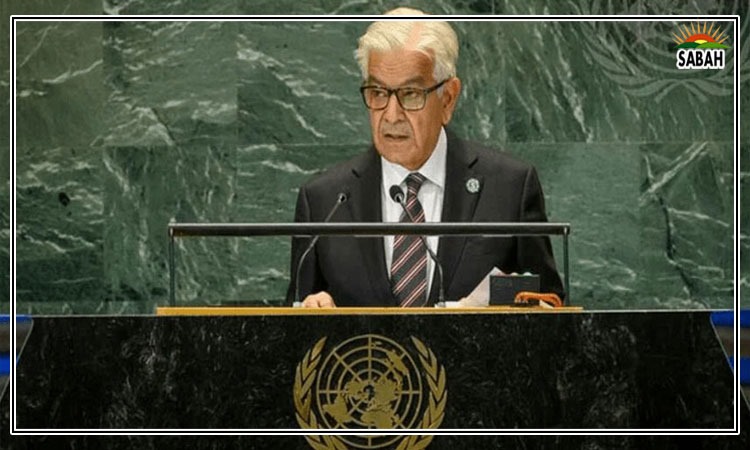No sustainable development can take place till tragedies like Gaza are perpetuated by the developed world: Khawaja Asif
NEW YORK, Sep 24 (SABAH): Defence Minister Khawaja Muhammad Asif has said that no sustainable development can take place till tragedies like Gaza are perpetuated by the developed world.
Addressing the UN’s Summit of the Future in New York, Khawaja Asif called for ensuring global economic equity by improving the representation of developing countries in international financial institutions, reviewing the sovereign debt architecture to make it more equitable and adopting an equitable international tax regime.
He said reforming the World Trade Organization will serve as a vehicle for export expansion and development, through preferential treatment for developing countries and avoidance of new environmental protectionism.
The Defence Minister said the adoption of the United Nation’s Pact for the Future is an expression of the international community’s collective determination to respond to global challenges, and called for upholding the commitments made in the game-changing document.
Khawaja Asif said that the adoption of the “Pact for the Future” is an expression of our collective determination to respond to the global challenges of security and development that threaten the present and future generations.
He said that for the over 100 developing countries, the Pact offers an opportunity to revitalise development and to reform the unequal international financial and economic system. He said that the Pact will be transformative only if we translate the commitments undertaken into concrete action.
He said that to bridge the $4 trillion SDG financing gap, we must:
• Fulfill the longstanding ODA commitments;
• implement the Secretary General’s SDG Stimulus proposal;
• rechannel 50% of the unused 2021 allocation of SDRs;
• Deliver a bigger, better and more ambitious IDA by ensuring a robust $100 billion replenishment in December this year;
• enlarge lending by the multilateral development banks; and
• lower borrowing costs for developing countries.
• improve the representation of developing countries in international financial institutions;
• review the sovereign debt architecture to make it more equitable;
• adopt an equitable international tax regime; and
• reform the WTO to serve as a vehicle for export expansion and development, through preferential treatment for developing countries and avoidance of new environmental protectionism.
Khawaja Asif said that the UN, by virtue of its universal membership and mandate, remains an indispensable platform to propel and monitor implementation of these commitments.
Khawaja Asif said that bridging the digital divide is key for an equitable future. Pakistan welcomes the outcomes of the Global Digital Compact in this regard. We must bridge the North-South divide and prevent an East-West fragmentation of the digital space. We must ensure equitable data governance. And, we must capture and control the power of Artificial Intelligence, Khawaja Asif said.












